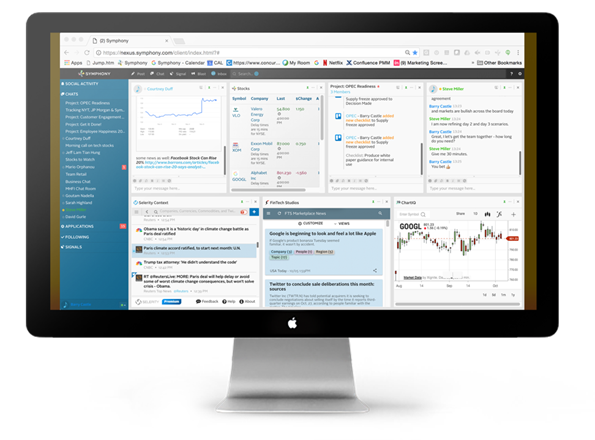Haven’t you heard it before?
It sounds so innocuous, but it is a loaded concept.
Back in the day, computer programs that facilitated or helped businesses or their employees do work were called “productivity applications”.
In the nascent days of the personal computer, or PC, era, these were, in no particular order, Lotus Development’s Lotus 1-2-3, WordStar’s and WordPerfect’s namesake products, Borland’s Quattro Pro, Ashton-Tate’s dBASE, Software Publishing Corp’s Harvard Graphics, etc., etc.
Real time communications consisted of PSTN telephony, which Ma Bell ruled with a very iron fist. Email was rather esoteric, and very limited.
Today, for desktop productivity applications, we have Microsoft Office.
And some challengers I only have peripheral competitive knowledge of. I don’t get bogged down with them, so I won’t bore you with them either.
However, work has moved away from just one desktop.
Workers today are more likely to be distributed among several locations, in several companies, and tasked with different goals.
What keeps things humming along are the telephone or some sort of messaging, and the venerable email. For those who have a need to collaborate closely, Microsoft Skype for Business (formerly Lync) is very likely to be in use, as it is the market leader in this space.
However, there are several limitations surrounding Skype4Biz, as I will call it going forward.
Into this breach stepped Symphony Communications, with their first product, which is simply and eponymously called Symphony.
What is Symphony?
Symphony is a secure collaborative communications platform that allows multi-party, multi-domain (multi-company) messaging and social chat.
It was built from the onset to have end-to-end encryption, and global financial-level compliance and auditing.
It is built on an extensible platform that allows applications built for it to preserve those security and compliance features.
Symphony is also cross-platform, available on the web, on iOS, and on Android.
Symphony Meetings
As of Thursday, October 6, 2016, Symphony now allows for recordable real-time multi-party communications.
Dubbed Symphony Meetings, this new feature empowers users to initiate audio, video, screen-share communications in real time. This multi-user communications functionality is backed into Symphony, and can be instantiated by any registered user. It is compliant in that sessions are recorded and available for compliance auditing, and control. It should be stressed that Symphony’s end-to-end encryption scheme is always in full effect over all communications.
As I understand it, this new feature is currently limited to 20 simultaneous users. However, that number will be increased by Q1 2017.
Symphony Webhooks API, the Symphony Foundation, and the Symphony platform
One aspect of Symphony Communications I understand better now, is the rôle of the Symphony Foundation.
As divulged to me by Symphony CEO David Gurle, Symphony Foundation was established almost concurrently with Symphony, and it was charged with harnessing the power of open source to encourage developers to create great apps that would leverage the power of Symphony.
Accordingly, at Symphony Innovate 2016, the Symphony Webhooks API was announced.
This API opens up Symphony to 3rd-party applications that deliver value in specific or relevant verticals, freeing the Symphony team from having to develop for, or target every conceivable usage scenario. This platform extensibility also allows for faster innovation across apps.
Company Momentum
One of the cool things shared at Symphony Innovate 2016 was company, and user momentum
Currently, Symphony is being used by over 116,000 users, a pleasing number over their year-end projections of 110,000 users by the end of 2016.
These users are spread over 100+ companies. These financial industry users comprise of 86,866 sell-side users, and 19,700 buy-side users.
Symphony also has 8,700 individual users utilizing it from 36 of their partner companies.
The Symphony Innovate 2016 Series
As announced here, I was at Symphony Innovate 2016 last week in New York City.
Over a series of articles, I will be bringing you my thoughts on the event, and of my interview with David Gurle, founder and chief executive officer of Symphony.
More information, and download links for Symphony, which is free to use for individuals, can be found here: www.symphony.com.
© 2002 – 2016, John Obeto for Blackground Media Unlimited
Follow @johnobeto





